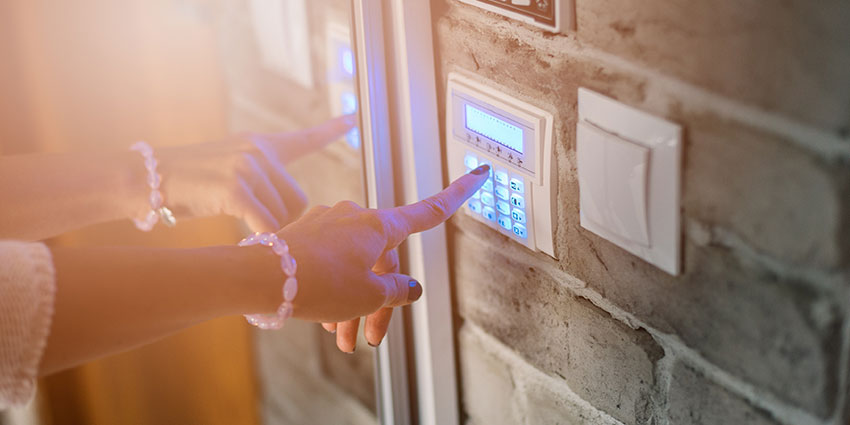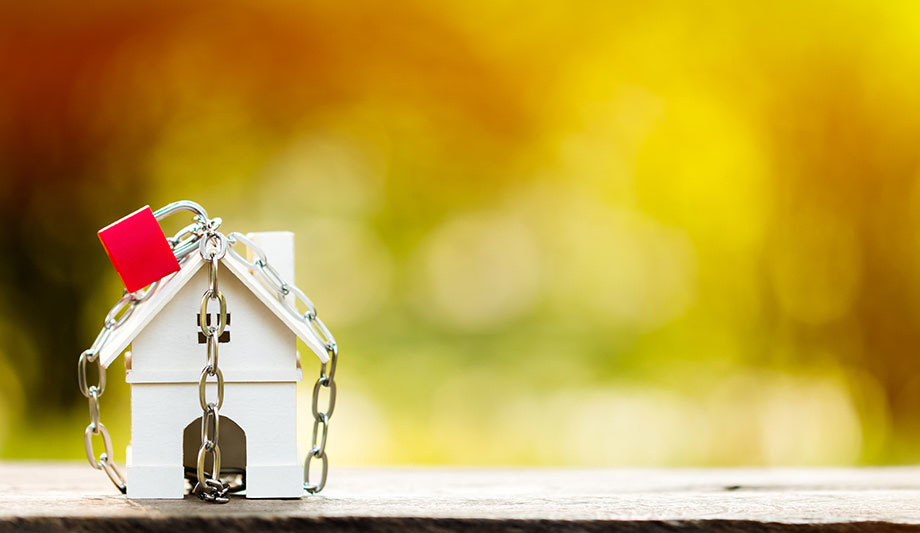There’s growing noise around smart homes and smarter security. You’ve probably heard it. But there is a place where access control and more have been smart for decades: the workplace. Home automation and IoT are still playing catch-up with the commercial sector. A new insights report from ASSA ABLOY and IFSEC Global — “The Smart Door Locks Report 2018” — measures just how fast consumer smart technology is running.
According to a survey conducted for the report, 61% of households now claim to own at least one smart home device or system. Energy monitors, home CCTV cameras, intruder alarms and smart door locks are the most popular, according to the report. All these functions, of course, have been available to businesses for years.61% of households now claim to own at least one smart home device or system
Educating the smart home consumer
Paradoxically, report data also questions how much consumers really know about their smarter home. A surprising 42% of those surveyed, for example, were unaware they could control a smart door lock from their phone. In fact, many leading smart door lock models offer this feature, delivered by Wi-Fi or Bluetooth and an app.
Despite a wealth of features offered by the latest smart door locks — remote and location-based locking/unlocking; voice activation; timed access; emailed entry alerts; and integration with smart camera and lighting systems — most people still have limited knowledge of their capabilities.
 |
| Smart technology is increasingly becoming the new norm in terms of home security |
Only 14% of survey respondents described themselves as “very familiar” with what a smart lock can do. Even though most of them probably use smart access control solutions at their workplace.
Secure homes through smart technology
Monitoring and security are not the only drivers for smart home adoption. We humans also love convenience, and modern living presents us with problems that smart home technology can solve. Ironically, given the report’s findings, it takes a smartphone to really unlock the convenient possibilities of smarter living. The device that’s “always to hand” is central to the newest generation of smart door locks.A smart door lock is a convenient way for a landlord or agency to offer round-the-clock check-in and check-out
If homeowners wish to remotely manage property access for friends and family, many smart door locks oblige. You let in guests remotely, send them a virtual digital key, or provide a temporary or single-use PIN to unlock the door.
It is just as easy to revoke a digital key, if you don’t want its owner to come around anymore. This is a significant improvement over sharing physical keys — or hiding one under the doormat. We cannot be totally sure where a metal key ends up and have no way to track or cancel it once it’s “out in the wild”. Commercial access control offers such functionality as standard, of course.
In addition, smart door locks offer more than just stand-alone operation and clever functions. In a domestic setting, magic happens when locks work in harmony with a home automation system, connected by protocols like Z-Wave, ZigBee or Wi-Fi.
"Smart" security on the move
The smartphone is becoming a remote control for managing a connected life beyond just home (and even workplace) security. According to Accenture, the parcel delivery services market will grow by $343 billion by 2020. Just like home security, convenience is a major driver of change.
 |
| Homeowners can send guests a virtual digital key to their phones, or provide a temporary or single-use PIN to unlock the door |
A recent PostNord pilot in Sweden aimed to remove the inconvenience of waiting home for a postal delivery. Selected customers of some major Scandinavian e-retailers could choose to have parcels delivered inside their front door, if it was equipped with a Yale smart door lock.
Home delivery is among potential smart services covered in “The Smart Door Locks Report 2018 ”. When asked whether the ability to receive parcels securely in a porch or lobby would make them more likely to invest in a smart door lock, 79% said it would.It is easy to revoke a digital key, if you don’t want its owner to come around anymore
Holiday rentals and smart home tech
ASSA ABLOY research published in 2017 forecasts continued growth in the European holiday rentals sector (at 5.8% CAGR). Smart door locks are also making an impact here, at both ends of the market: for service providers — agents and homeowners — and for travellers.
A smart door lock is a convenient way for a landlord or agency to offer round-the-clock check-in and check-out, without creating extra work or staff costs. Both Intersoft, in Croatia, and Hoomvip in Spain have built holiday rentals management systems around an app and the ENTR® smart door lock. Agents issue, revoke, track and manage virtual keys for all their guests, saving everyone time and hassle. Travellers use their phones and an app to unlock their apartment.
For these visitors the smartphone is already an essential travel accessory. It is a boarding pass, a credit card, a travel guide, and a postcard home... why not a door key, too? And if this key is backed by a trusted home security brand — and a company with vast experience in the mature market for commercial “smart” security — better still.








